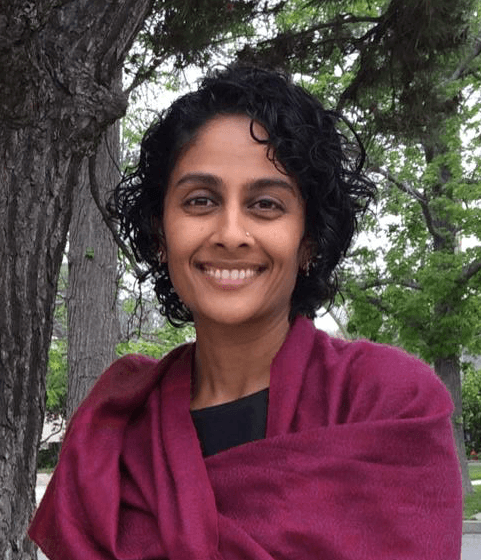 Brinda Sarathy, Professor of Environmental Analysis and Director of the Robert Redford Conservancy for Southern California Sustainability at Pitzer College
Brinda Sarathy, Professor of Environmental Analysis and Director of the Robert Redford Conservancy for Southern California Sustainability at Pitzer CollegeClaremont, Calif. (February 19, 2020)— Pitzer College Professor of Environmental Analysis and the Director of the Robert Redford Conservancy for Southern California Sustainability at Pitzer College Brinda Sarathy has received a Fulbright-Nehru Academic and Professional Excellence Fellowship to conduct her research “Best Practices in Municipal Solid Waste Management: A Case Study from Kodaikanal, India” over the 2020-21 academic year.
During her fellowship, Sarathy will partner with the Center for Environment and Humanity to study the institutional framework and social practices surrounding solid waste management in Kodaikanal, a hill station in the state of Tamil Nadu, India. While Kodaikanal faces cultural and socio-psychological barriers to waste cleanup seen elsewhere in India, Sarathy contends that there are compelling reasons for it to become an example of best practices in solid waste management.
First, Kodaikanal has a longstanding and critical mass of environmental advocates who have been implementing environmental literacy programs in area schools for several years. These environmental education efforts have created a network of partners through which a broader campaign around waste management might be initiated.
Second, key stakeholders in the municipality — including the Kodaikanal International School, the Hotel Industries Association and the Palani Hills Conservation Council — have been working to tackle the waste management problem collaboratively. Most recently, the Kodaikanal International School implemented waste segregation and recycling practices on their campus and encouraged other major hotels to follow suit. Anecdotally, these waste collection and segregation efforts are believed to have reduced landfill waste in the local dump by 30%.
Third, municipal officials have expressed a willingness to work with private sector institutions to deal with waste management. What this means in practice still requires further investigation. Finally, other factors that may give Kodaikanal an edge in dealing with its solid waste challenge include the town’s geographically contained nature and less rigid caste and communal dynamics (the town has long-established populations of Christians, Muslims and Hindus who have lived together without strife).
Over the course of her Fulbright, Sarathy hopes to cultivate longer-term exchanges between Pitzer College and host institutions in South India.
In the past three years, six Pitzer College professors have received Fulbright Scholar grants including Nigel Boyle, professor of political studies; Gretchen Edwalds-Gilbert, associate professor of biology; Daniel Segal, professor of anthropology and professor of history; Azamat Junisbai, associate professor of sociology; Emma Stephens, professor of economics; and Suyapa Portillo Villeda ’96, associate professor of Chicano/a-Latino/a transnational studies.
For 12
consecutive years, Pitzer has been a top producer of Fulbright Student Fellows
and recognized in The Chronicle of Higher Education’s annual list of
top-producing institutions for the Fulbright Program. Since 1994, Pitzer
students and alumni have won more than 260 Fulbright Student Fellowships.